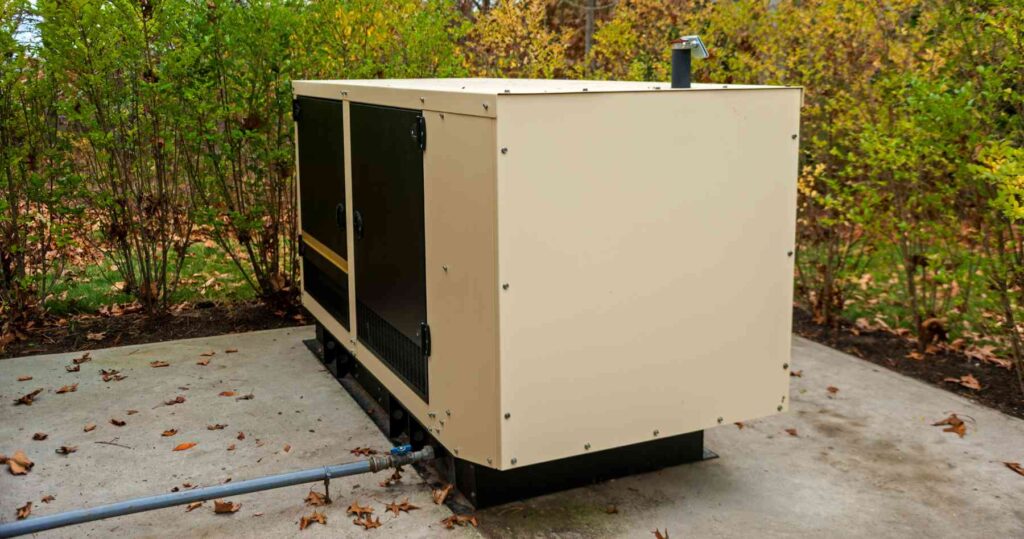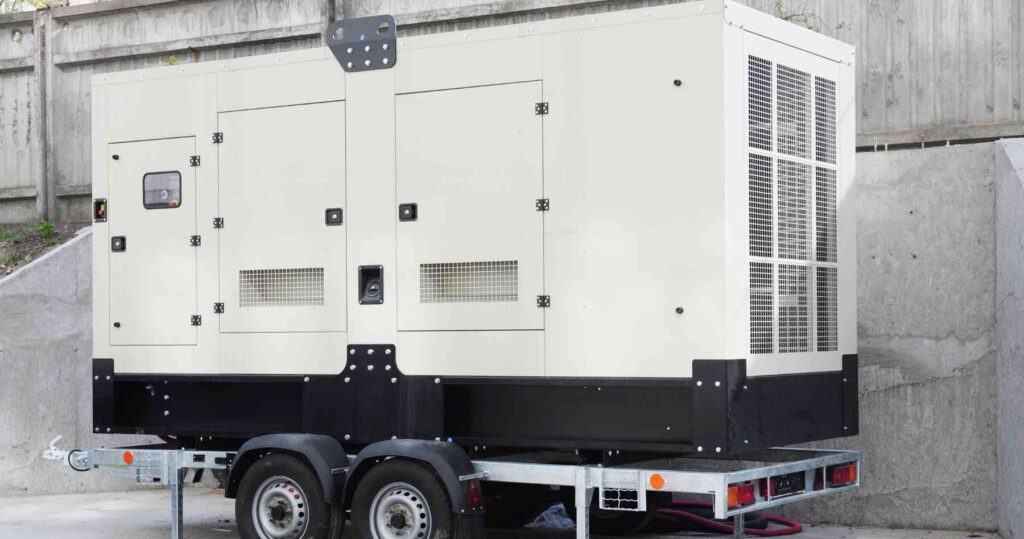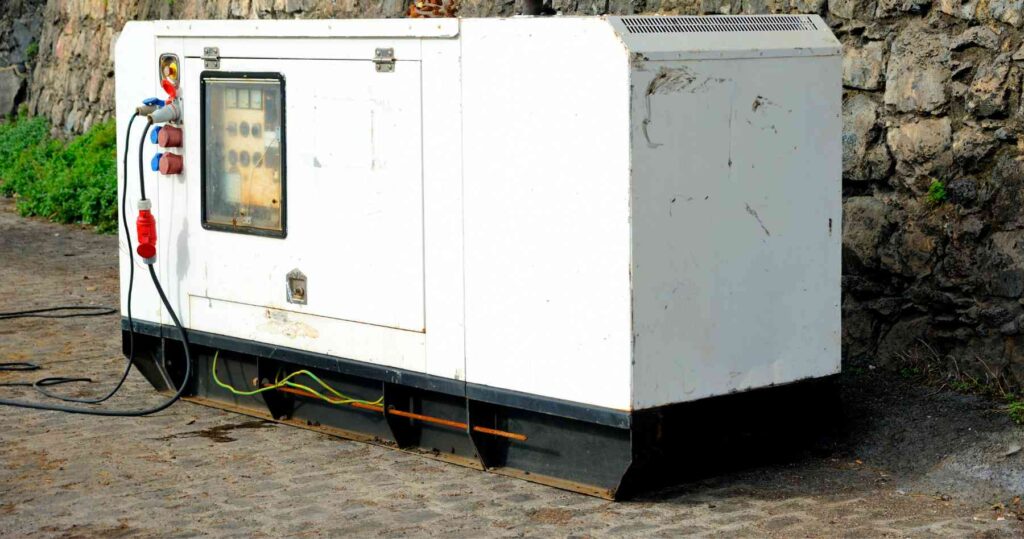Choosing the Right Generator: A Comprehensive Guide for Home and Business Owners
Power outages can strike at any time, whether due to severe weather, equipment failure, or other unforeseen circumstances. Having a reliable generator is essential for both homeowners and business owners to ensure uninterrupted power supply during such emergencies. However, with so many options available, choosing the right generator can be overwhelming. This comprehensive guide will walk you through everything you need to know about selecting the perfect generator for your needs.

Understanding Standby Generators
Standby generators are a popular choice for homes and businesses looking for a seamless power backup solution. These generators are permanently installed and automatically kick in when they detect a power outage. They are often connected to the main electrical panel, providing continuous power to essential circuits.
Automatic Activation: Standby generators turn on automatically when they sense a power outage, ensuring minimal disruption to your daily activities.
Power Capacity: These generators come in various power capacities, making them suitable for both residential and commercial use.
Fuel Source: Standby generators are usually powered by natural gas or propane, offering a continuous fuel supply.
Noise Level: They are designed to operate quietly, minimizing noise disturbances.
Understanding Portable Generators
Portable generators, on the other hand, are a more flexible and affordable option. They are not permanently installed and can be moved around as needed. These generators are ideal for temporary power needs or for situations where a standby generator may not be practical.
Portability: As the name suggests, portable generators can be easily moved from one location to another, providing power wherever needed.
Fuel Options: Portable generators run on various fuels, including gasoline, propane, and diesel, giving you options for fuel availability.
Power Output: They come in different power output levels, making them suitable for a wide range of applications.
Manual Activation: Portable generators require manual activation, which means you need to start them yourself during a power outage.
Key Factors to Consider When Choosing a Generator
Power Requirements: Calculate your power needs based on essential appliances and equipment you want to keep running during an outage. Make a list of wattage requirements to determine the generator’s capacity you’ll need.
Fuel Availability: Consider the availability of fuel sources in your area. While standby generators typically use natural gas or propane, portable generators offer more flexibility with various fuel options.
Run Time: Look for generators with a longer run time on a single tank of fuel to ensure extended operation without frequent refueling.
Ease of Use: Ensure the generator’s controls and features are user-friendly, especially in emergencies when stress levels may be higher.
Noise Level: If you prefer a quieter operation, choose generators designed with noise reduction technology.
Budget: Determine your budget and explore generator options within that range. Remember that investing in a quality generator is a long-term decision for reliable power backup.
Local Regulations: Check local regulations and guidelines for generator installation and usage to ensure compliance with safety standards.
Warranty and Support: Look for generators with a good warranty and accessible customer support to address any issues that may arise.
Enjoy The Peace Of Mind And Safety Of A MASTER Electrician...
Installation, Maintenance, and Safety Practices
Generator Installation
Proper installation is crucial to ensure the safe and efficient operation of your generator. It is recommended to hire a licensed electrician or a professional generator installer for the job. They will ensure the generator is correctly connected to your electrical system and compliant with local codes.
Regular Maintenance
Regular maintenance is vital for the longevity and reliable performance of your generator. Follow the manufacturer’s maintenance schedule and conduct periodic inspections. Common maintenance tasks include oil and filter changes, spark plug replacements, and battery checks.
Safety Practices
While generators are incredibly useful, they can pose safety risks if not handled correctly. Follow these safety practices:
Outdoor Placement: Always operate the generator outdoors, away from doors, windows, and vents to prevent carbon monoxide buildup.
Ventilation: Ensure proper ventilation around the generator to dissipate exhaust fumes safely.
Fuel Storage: Store fuel in approved containers in a cool, well-ventilated area away from ignition sources.
Electrical Connections: Avoid overloading the generator and use appropriate extension cords to prevent electrical hazards.
Children and Pets: Keep children and pets away from the generator during operation to avoid accidents.


Hear from our customers...
ExcellentBased on 7 reviews Trustindex verifies that the original source of the review is Google.
Trustindex verifies that the original source of the review is Google. Vanessa Johnson2021-05-27Great guys, always helpful and friendly. Have used their services for many years, always been satisfied with their service and pricing. Highly recommended!Trustindex verifies that the original source of the review is Google.
Vanessa Johnson2021-05-27Great guys, always helpful and friendly. Have used their services for many years, always been satisfied with their service and pricing. Highly recommended!Trustindex verifies that the original source of the review is Google. Melany Jane2021-04-28I'm really glad to have found Electrogem. Garth and Devin were professional, good-humoured, and worked neatly and hard - not even breaking for lunch. I really appreciated the jargon-free explanations of what was needed, and the great suggestions that I wouldn't have thought of (like replacing the old fluorescents in our stair lights with LEDs). They covered a large amount of work in a few hours and I found their pricing reasonable for the value.Trustindex verifies that the original source of the review is Google.
Melany Jane2021-04-28I'm really glad to have found Electrogem. Garth and Devin were professional, good-humoured, and worked neatly and hard - not even breaking for lunch. I really appreciated the jargon-free explanations of what was needed, and the great suggestions that I wouldn't have thought of (like replacing the old fluorescents in our stair lights with LEDs). They covered a large amount of work in a few hours and I found their pricing reasonable for the value.Trustindex verifies that the original source of the review is Google. Reggie Pfeiffer2020-07-20Great friendly professional service. Layne and Garth didn't think twice about going the extra mile and making sure my problems were attended to.Trustindex verifies that the original source of the review is Google.
Reggie Pfeiffer2020-07-20Great friendly professional service. Layne and Garth didn't think twice about going the extra mile and making sure my problems were attended to.Trustindex verifies that the original source of the review is Google. JOHN GAWLER2020-03-18I recently needed an Electrical Compliance Certificate for my property. A "highly recommended" company did an inspection and politely presented me with a "highly inflated" quote for remediation work. I was then referred to Electrogem. Layne Manly from Electrogem responded to my plea for help. Within a few days; Layne and his crew undertook a new inspection, completed the necessary remediation work and issued the necessary compliance certificate. The bill (including the new inspection fee) from Electrogem was substantially lower than the original quote. They are extremely professional, highly responsive and incredibly reliable. You will never go wrong by calling on Electrogem.Trustindex verifies that the original source of the review is Google.
JOHN GAWLER2020-03-18I recently needed an Electrical Compliance Certificate for my property. A "highly recommended" company did an inspection and politely presented me with a "highly inflated" quote for remediation work. I was then referred to Electrogem. Layne Manly from Electrogem responded to my plea for help. Within a few days; Layne and his crew undertook a new inspection, completed the necessary remediation work and issued the necessary compliance certificate. The bill (including the new inspection fee) from Electrogem was substantially lower than the original quote. They are extremely professional, highly responsive and incredibly reliable. You will never go wrong by calling on Electrogem.Trustindex verifies that the original source of the review is Google. Peter Holmes2019-05-23Electrogem have just installed a full solar PV system (panels, inverter, batteries) at my home. I found them to be very professional and the workmanship to be of the highest standard. Layne Manley is knowledgeable and approachable, and his staff (Garth and Michael) were meticulous in performing the installation. I can unreservedly recommend Electrogem .Trustindex verifies that the original source of the review is Google.
Peter Holmes2019-05-23Electrogem have just installed a full solar PV system (panels, inverter, batteries) at my home. I found them to be very professional and the workmanship to be of the highest standard. Layne Manley is knowledgeable and approachable, and his staff (Garth and Michael) were meticulous in performing the installation. I can unreservedly recommend Electrogem .Trustindex verifies that the original source of the review is Google. Sue Barnes2019-03-06When you have an electrical emergency it is great to know an electrician like Layne, as an estate agent it's important that we have a reliable support team, tx guysTrustindex verifies that the original source of the review is Google.
Sue Barnes2019-03-06When you have an electrical emergency it is great to know an electrician like Layne, as an estate agent it's important that we have a reliable support team, tx guysTrustindex verifies that the original source of the review is Google. Pieter Kotze2019-03-05Thank you Layne and team, great job, fast, clean and efficient. Highly recommended
Pieter Kotze2019-03-05Thank you Layne and team, great job, fast, clean and efficient. Highly recommended
Choosing the right generator is a critical decision for homeowners and business owners alike. Understanding the differences between standby and portable generators, considering essential factors, and following safety practices will help you make an informed choice. Remember to prioritize safety, quality, and reliability when investing in a generator to ensure uninterrupted power during emergencies.
Remember to bookmark this guide for future reference and share it with your friends and family to help them make the right generator choice too!
FAQs
Q: Can I install a standby generator myself?
A: Standby generator installations require expertise in electrical connections and local regulations. It is best to hire a licensed professional for safe and compliant installation.
Q: How long will a portable generator run on a full tank of fuel?
A: The run time varies based on the generator’s power output and fuel capacity. Most portable generators can run for several hours on a full tank.
Q: Can I power my entire house with a portable generator?
A: Portable generators are designed to power specific appliances or circuits, not the entire house. For whole-house backup, consider a standby generator.
Q: What should I do if my generator won’t start?
A: Check the fuel level, battery charge, and other maintenance aspects. If the problem persists, consult the user manual or contact customer support.
Q: Are there any eco-friendly generator options available?
A: Yes, some generators are designed to be more fuel-efficient and produce fewer emissions, making them more eco-friendly.
Q: Can a generator be used indoors during a power outage?
A: No, generators should only be used outdoors due to the risk of carbon monoxide poisoning.
